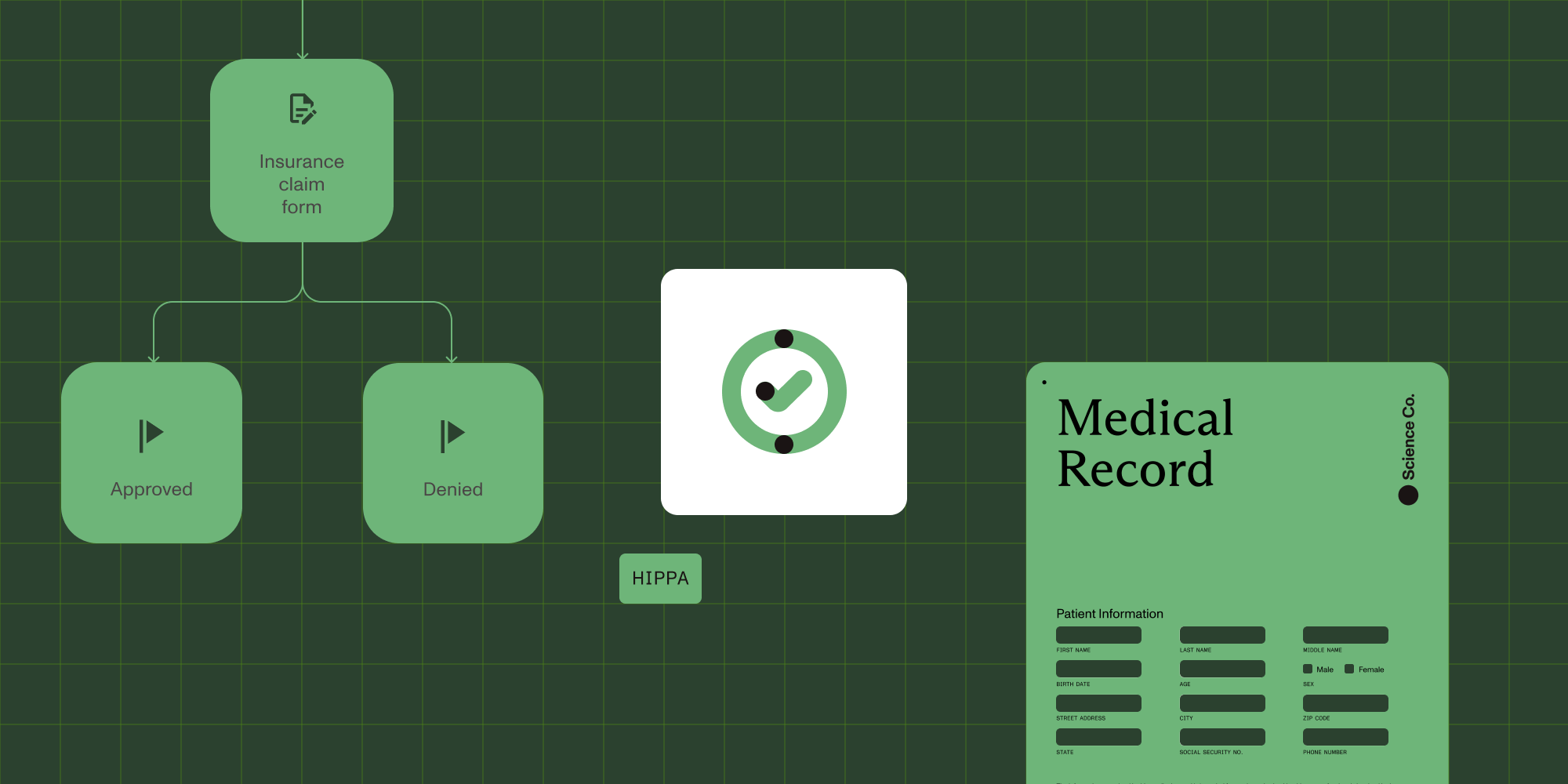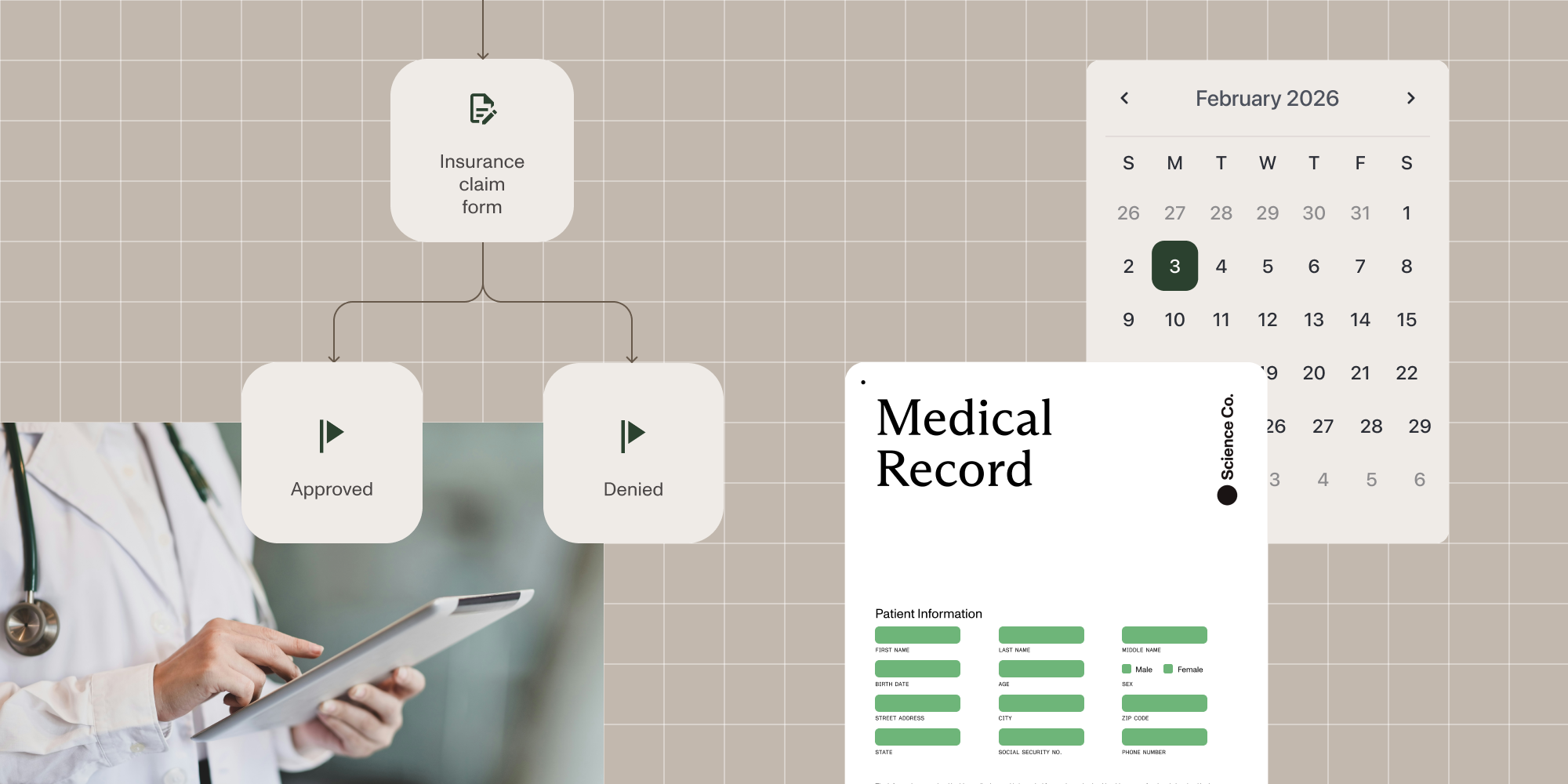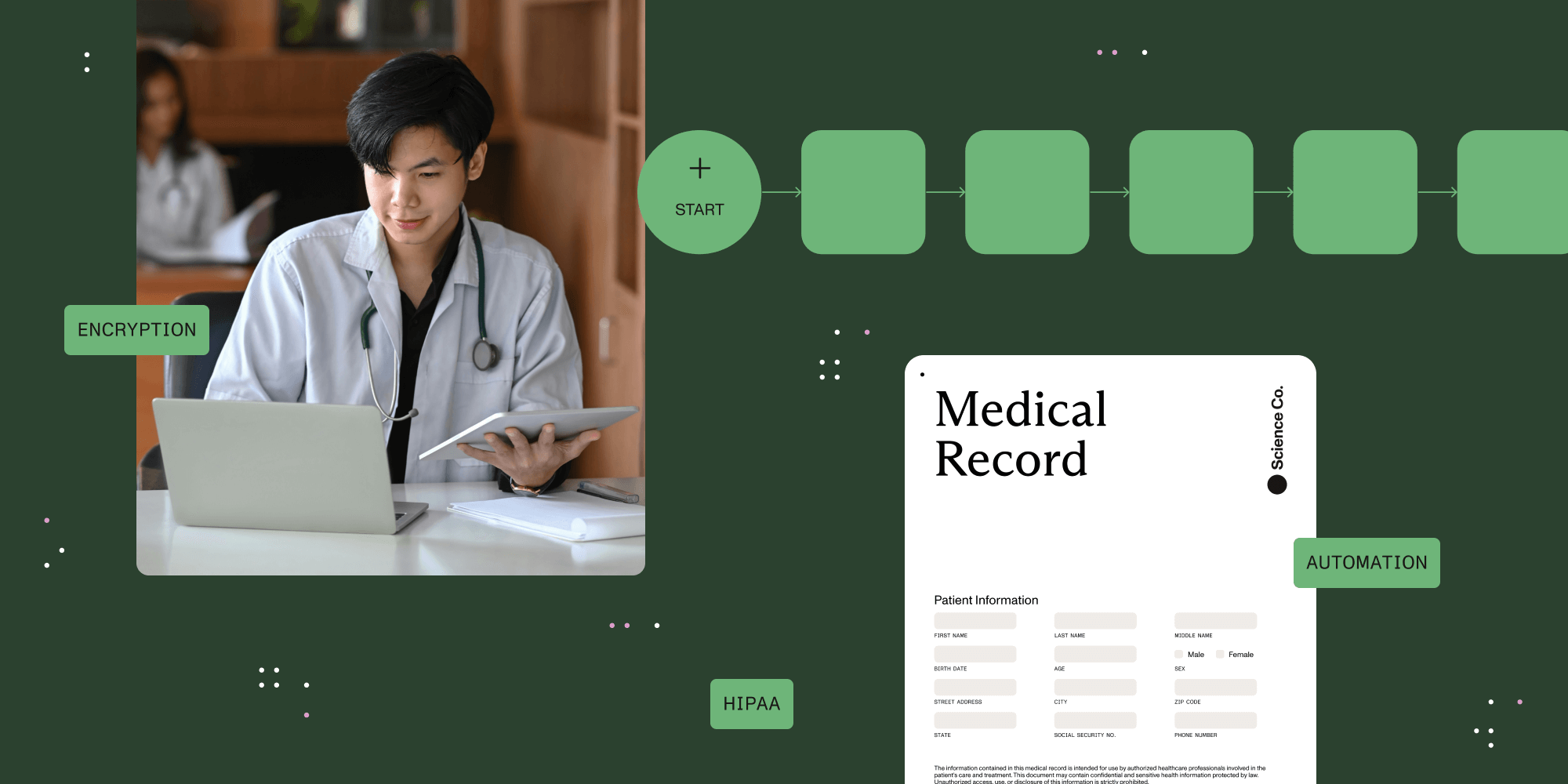Requisition form: Cut approval time and eliminate manual errors
Table of contents
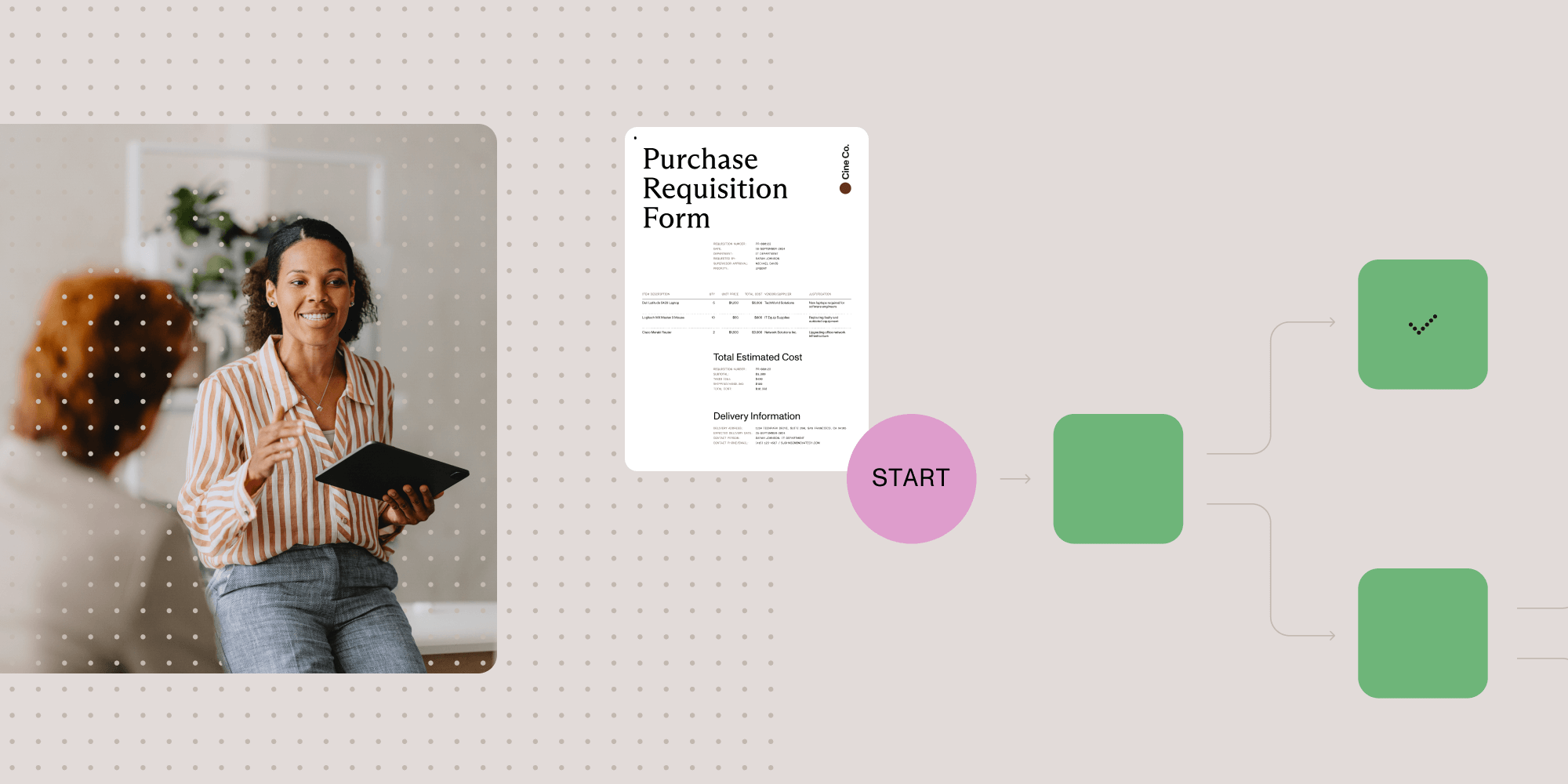
Try Workflow Automation free for 14 days.
Requisition forms are internal documents that formally request goods or services within organizations. Digital solutions offer advantages over traditional paper forms, including reduced errors, real-time tracking, and streamlined approvals. Common types include purchase, material, service, and travel requisitions. Automating the process with Nutrient Workflow improves compliance, reduces cycle times, and provides better spending control with transparent audit trails.
Efficient procurement starts with clear internal communication — and that begins with requisition forms. Whether employees need supplies, services, or travel approvals, a structured request-and-approval system helps organizations control spending and ensure compliance.
With Nutrient Workflow, teams can digitize requisitions, automate approvals, and reduce bottlenecks — leading to faster decisions and better spend control.
Jump to a section:
- What is a requisition form?
- How to create requisition forms in Nutrient
- Types of requisition forms
- Benefits of digital forms
- Best practices
- FAQ
What is a requisition form?
A requisition form is a standardized document used to initiate an internal request for goods, services, or other resources. It ensures requests follow a consistent approval path before any commitments are made.
Requisition forms support a variety of needs — such as raw materials, software, maintenance services, or travel — and bring consistency and accountability into the procurement process.
Modern requisition forms are increasingly digital, allowing for automated routing, validation rules, and real-time tracking.
How to create requisition forms in Nutrient Workflow

Watch the video above to see how you can create and automate requisition workflows in minutes.
Nutrient Workflow includes a visual form builder with drag-and-drop components, customizable fields, and logic-based workflow rules. Create simple or complex forms and preview them live to test your automation paths.
Try our automation solution freeTypes of requisition forms
Different types of requisition forms serve different organizational functions:
- Purchase requisition forms — For external vendor purchases
- Material requisition forms — For production materials or inventory needs
- Service requisition forms — For professional or maintenance services
- Travel requisition forms — For flights, hotels, and travel expenses
Automate approvals, track requests in real time, and reduce manual work with Nutrient Workflow.
Digital requisition forms are better
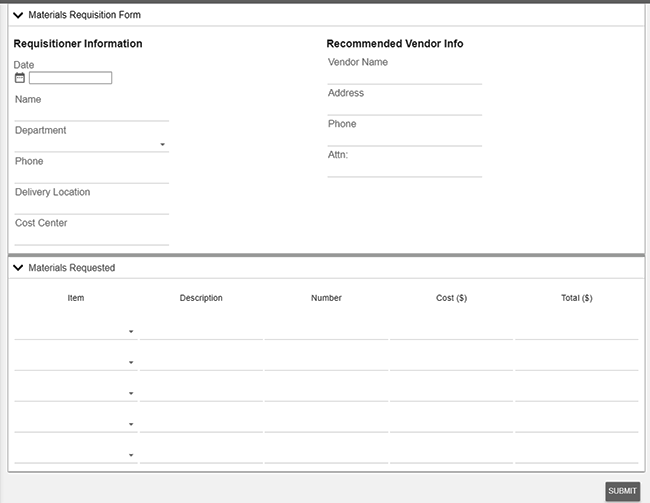
Moving from paper or spreadsheets to digital forms delivers major benefits, outlined below.
Improve compliance and standardization
- Forms are accessible 24/7 across devices
- Validation rules prevent missing or incorrect data
- Prepopulated fields for vendor, cost center, or account information
Reduce request cycle time
- Dynamic routing based on department, spend level, or urgency
- Alerts and reminders prevent approval delays
- Analytics spotlight process bottlenecks
Gain spending control
- Live status tracking for all requests
- Budget-aware routing and spending thresholds
- Reduced paper waste and operational overhead
See how Nutrient can help you automate procurement workflows from start to finish.
Simplify requisition form processes
With Nutrient, you can build digital templates for any requisition need:
- Purchase requisition forms
- Materials requisition forms
- Personnel requisition forms
- Advance requisition forms
Automate key tasks like:
- Approval routing
- Notifications and escalations
- Request cancellation or handoff
- Transfer between teams
Automation reduces the request backlog, improves transparency, and ensures every requisition follows your organization’s rules.
Start building intelligent workflows with Nutrient — no code required.
Best practices for requisition forms
To make your requisition process scalable and compliant:
- Standardize templates across departments
- Use automation to prevent missed approvals
- Ensure complete data is captured upfront
- Route based on logic (cost center, department, value)
- Track every request to close the loop
- Review regularly to update with business changes
Request a demo or get started with a free trial today.
FAQ
A requisition form is an internal document employees use to request goods or services. It initiates procurement by routing the request through approvals before any purchase commitment.
Nutrient Workflow provides a drag-and-drop form builder, automated approval routing, real-time tracking, and integration with accounting systems — all without coding.
Nutrient Workflow supports purchase requisitions, material requisitions, service requisitions, travel requests, and personnel requisitions. Each form type can have custom fields and approval rules.
Yes. Nutrient Workflow connects with ERP systems, accounting software, and other business applications through APIs and prebuilt connectors.
Most customers have their first requisition workflow live within a few weeks. The Nutrient Workflow Customer Success team provides hands-on support during setup.





